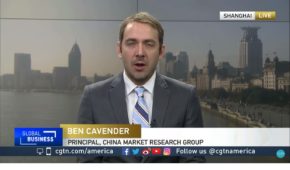 |
| Ben Cavender |
Reuters:
Luckin has gone toe-to-toe with Starbucks in China since it opened its doors early last year and the results highlight the Chinese company’s high cash-burn rate as it offers cut-price alternatives.
Luckin’s operating expenses surged more than three times in the June quarter, as it opened 593 new stores taking its total to 2,963, about 1,000 fewer than Starbucks.
On an adjusted basis, Luckin lost 48 cents per share. Analysts expected a loss of 43 cents, according to IBES data from Refinitiv.
“(While) Luckin probably has done slightly better in the most recent quarter in terms of acquiring and keeping customers, the company is still having to work on aggressive recruiting of customers, which hurts the bottom line,” Ben Cavender, Shanghai-based principal at China Market Research Group, said before the results were released.
Luckin has also expanded beyond coffee, allowing customers to buy food and other beverages via its app....
Analysts reckon both coffee companies will soon see more competition from smaller rivals.
“At home Luckin is facing increasing competition both from quick service restaurant brands like KFC that are placing greater emphasis on coffee, as well as smaller chains like Manner Coffee that are using somewhat similar business models to interact with the consumer,” said Cavender.
Luckin’s total net revenue surged more than seven-fold to 909.1 million yuan in the June quarter.More in Reuters.
Ben Cavender is a speaker at the China Speakers Bureau. Do you need him at your meeting or conference? Do get in touch or fill in our speakers' request form.
Are you looking for more experts on consumers at the China Speakers Bureau? Do check out this list.












